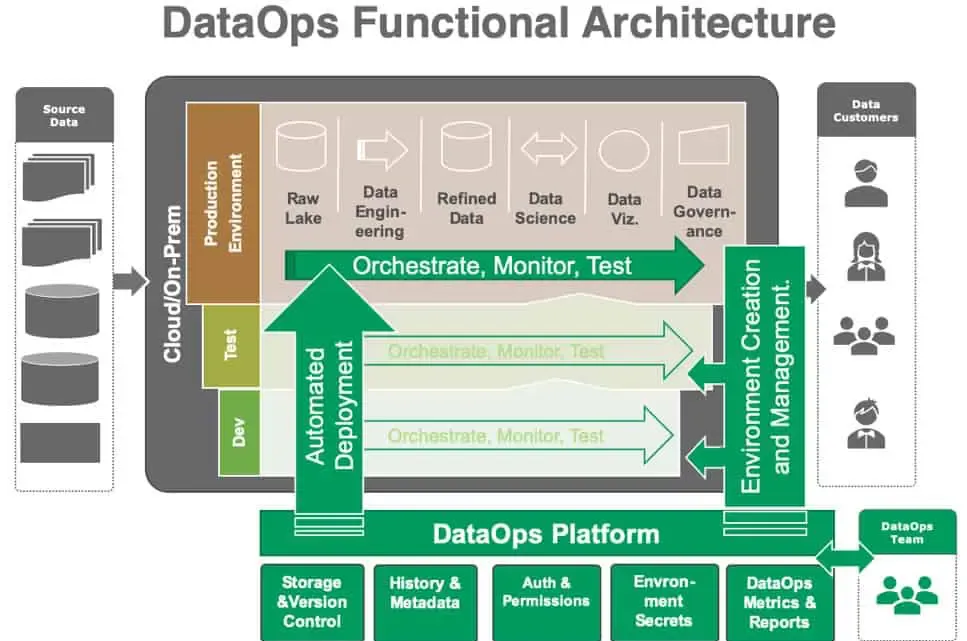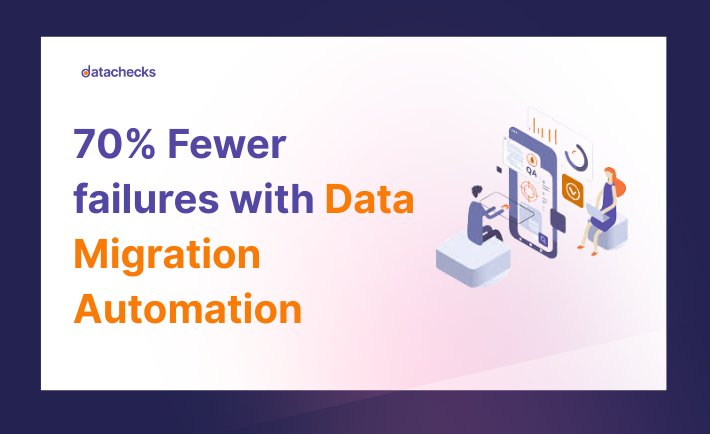In today’s data-driven enterprise landscape, 64% of data migration projects exceed budget, only 46% are delivered on time, and fewer than 70% succeed. The main culprit? Manual, time-consuming validation, reconciliation, and test data generation—critical for any strong data migration strategy.
As data ecosystems grow more complex, manual testing becomes a bottleneck that threatens digital transformation. The solution isn’t incremental fixes, but a fundamental shift to intelligent automation powered by Agents.
The Hidden Cost of Manual Data Operations

Manual data operations cost more than just labor. Automating them cuts test data creation and provisioning costs by 40–70%, improves productivity, and speeds time to market. Yet, many enterprises still rely on resource-heavy legacy methods.
Typical data migration projects involve weeks of creating validation rules, months reconciling discrepancies, and countless hours generating synthetic datasets. Each manual step risks human error, delays, and drains strategic talent.
Enter the Data Migration Agent: Intelligent Automation for Data Operations
Agents shift from reactive to proactive data quality management. Unlike legacy tools needing heavy setup, they use AI to understand data patterns, spot anomalies, and adapt autonomously.
Automated Data Validation: Beyond Rule-Based Checking
Traditional validation relies on fixed rules and static schemas. Migration Agents go further by:
- Dynamic Rule Generation based on data patterns and business logic
- Contextual Anomaly Detection that catches outliers missed by rules
- Adaptive Learning that improves over time
- Cross-System Validation without manual mapping
Static approaches consistently fall short in today’s data landscape.
Intelligent Data Reconciliation: Precision at Scale
Data Migration Agents transform reconciliation by offering:
- Automated Matching Logic to link records across systems
- Exception Handling that resolves conflicts without human help
- Audit Trail Generation for compliance
- Real-Time Monitoring preventing data drift
Synthetic Data Generation: Realistic, Compliant, Scalable
Data Migration Agents solve test data generation challenges with:
- Pattern Recognition to mirror real data structures
- Privacy Compliance ensuring regulatory alignment
- Volume Scaling to produce datasets of any size
- Scenario-Based Generation for specific business cases
Synthetic data ensures wide coverage while maintaining security and privacy.
The Agentic Advantage: Why This Changes Everything
Agents don’t just automate—they operate independently, make decisions, and adapt.
Autonomous Operation
Data Migration Agents offer:
- 24/7 Monitoring without human oversight
- Proactive Issue Resolution before problems escalate
- Self-Optimization improving through experience
- Contextual Decision-Making aligned to business priorities
Intelligent Problem Solving
Traditional automation stalls when faced with the unexpected. Agents instead:
- Perform Root Cause Analysis automatically
- Recommend Solutions
- Predict Problems in advance
- Integrate Learning to prevent repeats
They keep operations stable despite system changes or unexpected conditions.
Real-World Impact: Quantifying the Benefits
Time Reduction
60–80% less time spent on validation and reconciliation.
Cost Optimization
Positive ROI within months of automation implementation.
Risk Mitigation
Reduced human error, comprehensive audit trails, and full compliance documentation.
Scalability Enhancement
Seamless scaling across data volume and complexity.
Managing the Challenge of Data Drift
Looking Forward: The Future of Data Operations
Data Migration Agents aren’t just about efficiency. They enable enterprises to:
- Accelerate innovation cycles
- Reduce technical debt
- Power new business models based on real-time, high-quality data
- Strengthen competitive positioning
Conclusion: The Strategic Imperative
The choice today isn’t whether to automate, but how fast to shift to intelligent, agentic solutions. Inaction leads to delays, budget overruns, and missed opportunities.
Data Migration Agents aren’t just solving current challenges—they’re the foundation for future innovation. For executives evaluating data migration strategies, it’s not Data Migration Agents will become standard—it’s whether you will lead or follow.



.svg)







